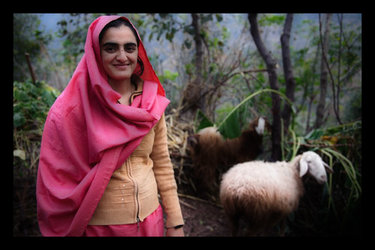Women Farmers Get Help From USAID Dairy Project
 Pakistan’s rural economy has been growing in part due to a USAID-funded Dairy Project. The project works to help women farmers increase their incomes and improve their livelihoods. With the project, USAID has trained a group of 5,000 female livestock workers who are available to provide veterinary services and advice on the care and feeding of cattle. These livestock workers are trained locally and speak the language. Aside from providing education, the USAID project also provides supplies for animals such as feed, vitamins, and medicine. The hope is that the USAID Dairy Project will create new jobs and improve the lifestyle of rural farmers throughout Pakistan.
Pakistan’s rural economy has been growing in part due to a USAID-funded Dairy Project. The project works to help women farmers increase their incomes and improve their livelihoods. With the project, USAID has trained a group of 5,000 female livestock workers who are available to provide veterinary services and advice on the care and feeding of cattle. These livestock workers are trained locally and speak the language. Aside from providing education, the USAID project also provides supplies for animals such as feed, vitamins, and medicine. The hope is that the USAID Dairy Project will create new jobs and improve the lifestyle of rural farmers throughout Pakistan.
Rural women farmers are a huge part of the workforce in Pakistan. One resident told of how her husband used to work but due to an illness had to quit leaving her as the sole income source for their family. She was educated through the 12th grade and was able to get a position as one of the livestock extension workers and help both her family and her village. The hope she will be able to bring to her children and her family is just one of the positive results of the USAID project.
The USAID Dairy Project began in July of 2011 and employs rural women with a high school diploma. They are trained in basic animal health skills and entrepreneurship. The program has trained 2,470 unemployed women since it began and helps them to earn an average of 2,500 rupees a month. The program aims to train additional 2,530 farmers. The USAID project has connected rural farmers to livestock experts and pharmaceutical companies and helped them gain additional knowledge and skills. One of the women involved has been able to treat around 6,000 animals and earn 46,000 rupees. Her household is growing and she is able to reinvest in her own agricultural business.
Dairy and livestock sectors contribute around 11% to the gross domestic project (GDP) of Pakistan. The USAID Dairy Program is helping rural women contribute to the improvement of the sector and earn an income to better provide for their families.
– Amanda Kloeppel
Source: Pakistan Observer
